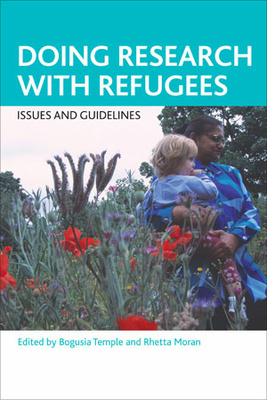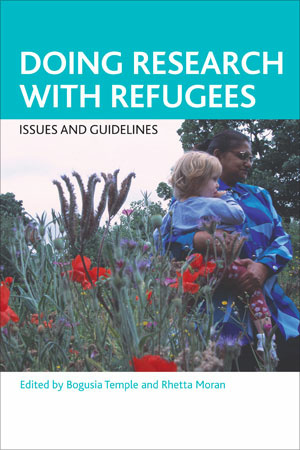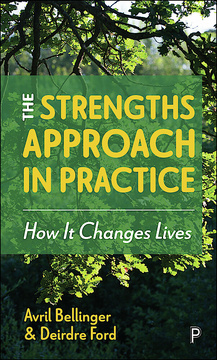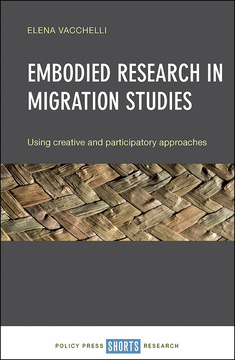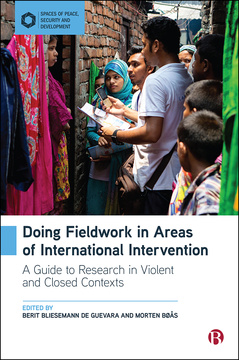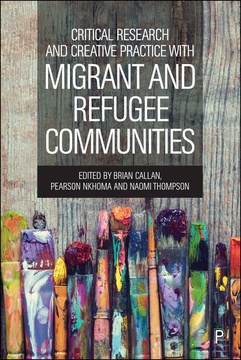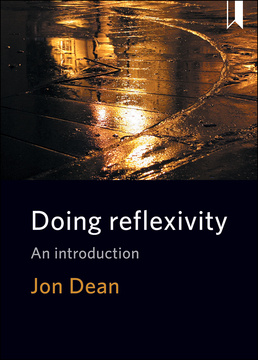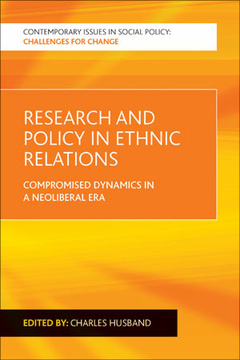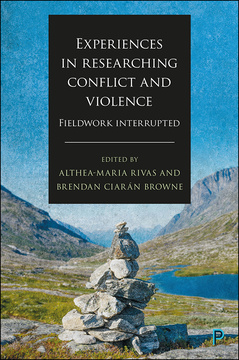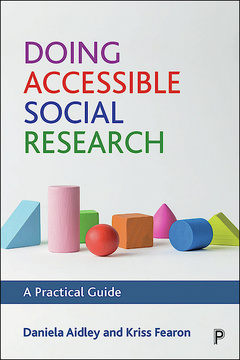Published
Mar 16, 2011Page count
232 pagesISBN
978-1847429056Dimensions
234 x 156 mmImprint
Policy PressPublished
Jan 31, 2006Page count
232 pagesISBN
978-1861345981Dimensions
234 x 156 mmImprint
Policy PressThis book is the first specifically to explore methodological issues relating to the involvement of refugees in both service evaluation and development and research more generally. It builds on a two-year seminar series funded by the ESRC and attended by members of a range of statutory and voluntary organisations, as well as academics and refugees themselves. The participants jointly drew up a set of good practice guidelines that are re-produced in the book for the first time.
Key features include a focus on the methodology for active involvement of refugees; a discussion of barriers to involvement; suggestions for overcoming barriers; analysis of existing practices and ideas for change and a discussion of the implications for policy, research and practice.
Doing research with refugees is essential reading for anyone working with in the field. This includes academics, researchers, health and social care providers and voluntary organisations. Refugees themselves who are interested in their role in service evaluation, development and research will also find the book of interest.
"... a lively, accessible book with a humane and open approach to the subject. ... this is a useful and thorough guide for anyone planning to undertake research in this area. It is a thought provoking and sometimes moving account of a diverse group of people who have used research in an attempt to give refugees a greater voice in society." Diversity in Health and Social Care
"Here is a book about refugee people, including those seeking asylum, as agents. Their participation in the research processes which inform the policies that shape their lives is seen as vital to the success both of the research and the ensuing social action. This is a pioneering collection that explores a new, and to some, disconcerting, direction in research. No one engaged in research with refugees can afford to ignore the questions it raises." Nicholas Sagovsky, Canon Theologian at Westminster Abbey and Visiting Professor in Theology and Public Life at Liverpool Hope University
Bogusia Temple is Professor of Health and Social Care Research at the University of Central Lancashire. She has extensive research experience with service providers, service users and community groups in health and social care.
Rhetta Moran is an independent researcher who has worked across the voluntary and academic sectors developing action research projects for 20 years.
Introduction ~ Bogusia Temple and Rhetta Moran; Refugees as researchers: experiences from the project 'Bridges and fences: paths to refugee integration in the EU' ~ Elizabeth Mestheneos; Limited exchanges: approaches to involving people who do not speak English in research and service development ~ Bogusia Temple and Rosalind Edwards; Breaking the silence: participatory research processes about health with Somali refugee people seeking asylum ~ Rhetta Moran, Zeinab Mohamed and Hermione Lovel; Home/lessness as an indicator of integration: interviewing refugees about the meaning of home and accommodation ~ Priya Kissoon; The community leader, the politician and the policeman: a personal perspective ~ Manawar Jan-Khan; Complexity and community empowerment in regeneration, 2002-04 ~ Felicity Greenham with Rhetta Moran; Refugee voices as evidence in policy and practice ~ Kirsteen Tait; Challenging barriers to participation in qualitative research: involving disabled refugees ~ Jennifer Harris and Keri Roberts; Why religion matters ~ M. Louise Pirouet; Action learning: a research approach that helped me to rediscover my integrity ~ Anna Maria Miwanda Bagenda.







